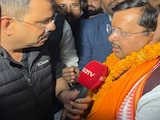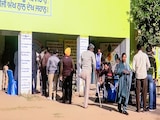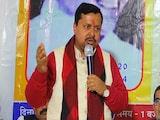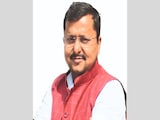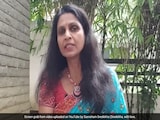Microsoft co-founder and billionaire philanthropist Bill Gates has said he would give India "an A" for its focus on solving the problem of malnutrition.
"Well, India, for its income level, acknowledges that some of these nutritional indicators are weaker than it would like. That kind of frankness and focus on it, I think is very impressive," Gates told PTI in an interview. He said India is more focused on the issue than any other government, Gates said.
"It's using the public feeding system and the Midday Meal System to try and get fortified foods out, but it's still a huge opportunity," Gates said. "I would give India an A for focus on the problem," he said.
Responding to a question on the occasion of the launch of the Gates Foundation's Goalkeepers Report 2024, Gates said: "I think it probably would rate itself maybe a B for the education but with the real serious intent to do even better." The annual report tracks progress on the Sustainable Development Goals (SDGs).
The understanding of malnutrition has improved a lot, Gates said, adding that the Gates Foundation is the biggest funder there.
"Part of that's been understanding the complex system in your gut, which involves a lot of bacteria. It's called the microbiome. But what we've seen is that if you're missing certain vitamins or if you're missing protein, some kids, their gut gets inflamed, so they can't absorb the food they're eating, and they simply don't grow," he said.
One of the tragedies of malnutrition is measuring how much a kid loses in terms of their physical capabilities and mental capabilities because of malnutrition at a young age, he said. "We haven't had a very good measure of that. We're getting better at that," he said.
Solving malnutrition or even just reducing it has two gigantic benefits, he said. "One is that a well-nourished kid is far less likely, twice as less likely to die as they face various disease episodes like diarrhoea or pneumonia during their early years; but the second thing, which is absolutely gigantic, is that because in those early years, your malnutrition, deficits, you can't recover," he said.
"That is if you don't have full brain development at an early age or full height and strength development when you're older, it doesn't matter if you eat enough, you don't grow those extra inches, gain that strength, or have your brain develop," he said, calling it a lifelong deficit.
"India is a great example where if we can reduce malnutrition, it literally helps drive meaningful economic growth," said the co-chair and Board Member of the Gates Foundation. Responding to a question, Gates said India can play an important role in this area.
"It's the place where these new approaches like the probiotic where we have the trials going on," he said.
"The cost of getting the anaemia in one-time infusion down, it's the Indian private sector making investments in that. And as we see the success of the interventions, that will clearly indicate that in Africa, which has an even more challenging malnutrition problem than India does, what should be the priority in those countries," he said.
In the next five years, a lot will be learnt in India that will provide information for other programmes globally, Gates said.
Gates said it's been great to see that India has more and more philanthropists domestically, including people in the tech sector.
"We're involved in sharing ideas and really encouraging and celebrating that some of that philanthropy, both individual and corporate, does go against health and malnutrition specifically. We have good partners. If you go back ten years ago, it would have been more limited, like the Tata Trusts and Nandan Nilekani. But now, with additional success and encouragement, it's gotten to be quite a bit broader," he said.
In response to a question, Gates said the period from 2000 to 2019 was a miracle period. "And it's the result of a lot of things, but the biggest is what we did to get new vaccines out to all the world's children. India played two big roles in that," he said.
"One is, of course, itself that adopted the new vaccines, Rotavirus, pneumococcus, and got very high coverage of those," he said.
The majority of all those vaccines are made in India, he added. "We've worked with those partners to get not only the volumes up but also to get the cost down. That's allowed GAVI to provide the vaccines basically for free to developing countries," Gates said.
Gavi is an international organisation created in 2000 to improve access to new and underused vaccines for children living in the world's poorest countries. He said during the pandemic many countries that had been borrowing money reduced their spending on health.
"Fortunately for India, that's not as much the case. The external debts are not gigantic. You haven't had that kind of squeeze," he said. India has been self-reliant when it comes to scaling things up in a very, very big way, he said.
"If we can take the latest innovations, including in these nutrition areas, there's every reason to think India can continue the health improvement, including reducing maternal death and childhood death," Gates said.
(Except for the headline, this story has not been edited by NDTV staff and is published from a syndicated feed.)





